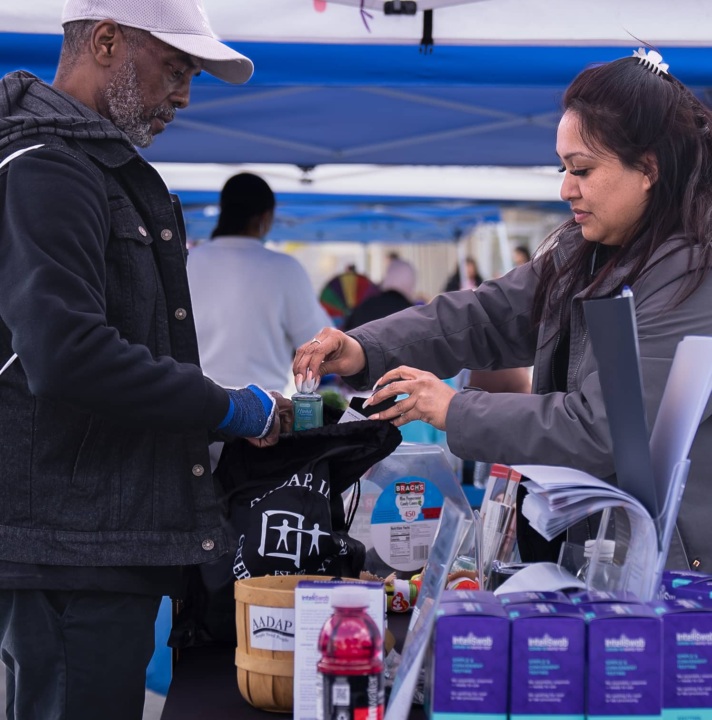
Community Reinvestment (Deep Dive)
This section offers a deep dive into the issue of community reinvestment. To visit the main page for a quicker overview, click here. Otherwise, keep scrolling to learn more.

This section offers a deep dive into the issue of community reinvestment. To visit the main page for a quicker overview, click here. Otherwise, keep scrolling to learn more.
Why Community Reinvestment for Those Harmed by the Drug War Matters
Communities need resources to properly address issues such as addiction and homelessness. Instead of failed drug war systems and tactics, invest in addiction services and social supports. This includes voluntary treatment, housing, employment, harm reduction, recovery services, and peer support.
The US Government cannot currently fund the services we know help people because government budgets spend too much money on policing and enforcement. People of color and poor people are disproportionately impacted due to targeted policing. Communities most hurt by the drug war deserve the resources needed to repair and grow.
Problems Caused by The U.S. Government Prioritizing Drug Criminalization and Policing
The US government spends an estimated $47 billion enforcing drug prohibition laws every year. A drug arrest, whether a person is convicted or not, can have life-long consequences. These include loss of employment, housing, and educational opportunities. Loss of housing and opportunities harms more than the person arrested. It also hurts their family and the growth of their community.
Some elected officials and leaders have sold the belief that policing and jail are the only ways to keep our communities safe. But studies show that investing in services like housing, job training, and health services instead of police and jails gives people the tools they need to thrive. These types of services are better at reducing overdose deaths and other harms related to drug use than arrest and incarceration.
Jailing people for drug use has a questionable impact on public safety. In fact, evidence shows jailing people is not an effective tool to deter drug use or mitigate the harm it can cause.
In the pursuit of drugs, police have been given unchecked power to use aggressive tactics. This has led to killings, particularly of Black, Latinx, and Indigenous people. Vast numbers of people experiencing a mental health crisis or intoxication have been killed by police. They may have had little to no training in de-escalation or behavioral crisis intervention. Mental health and addiction crises should be addressed outside of policing.
Elected officials need to end arrests and policing for drug use. This will show they are serious about ending homelessness and the overdose crisis while improving community safety. They must then fund the services people desperately need. They can do this with the savings from decriminalization.
Invest in Communities, Not More Criminalization
Police should not be the gatekeepers to health services. Local and federal governments should take the savings from ending harmful policing strategies and build new responses. New teams can replace police in responding to drug use and mental health crises. They can include emergency medical staff, behavioral health experts, crisis-trained responders, and people with lived experience.
Most people who use drugs do not develop a substance use disorder and lead meaningful lives. Those who do struggle with drugs need support. That means a home, educational opportunities, and a stable job. They need a sense of community to thrive. This means better access to addiction services and social supports.
Different communities need different responses. We must center communities most harmed by the drug war in conversations about their own reinvestment and repair. This is especially true for communities of color and poor people who have been targeted by the drug war. As a result, they face higher incarceration rates. Communities must center and drive the decision-making of policies that would repair the harms.
As we work to change our laws, all drug policies must consider and propose language to repair and invest in communities.
Benefits of Community Reinvestment
The Drug Policy Alliance helped win restitution in New York with a historic marijuana legalization law. This law invests marijuana tax revenue and funding into community-led initiatives and services. These services include re-entry services, afterschool programs, skills-building, and job training programs. Voters wanted to see marijuana revenue reinvested in this way.
In 2020, Oregon voters overwhelmingly approved Ballot Measure 110, making Oregon the first state in the U.S. to decriminalize possession of small amounts of all drugs. It also greatly expanded addiction services and social supports through redirected marijuana tax revenue and law enforcement savings.
Measure 110 redirected the majority of Oregon’s marijuana tax revenue into funding addiction services. This included low-barrier substance use disorder treatment, harm reduction and overdose prevention services, housing, recovery and peer support services, and employment supports. Measure 110 required that these services be available in every county in the state through atleast one Behavioral Health Resource Network.
Measure 110 resulted in over $300 million to expand addiction services in its first two years alone, resulting in dramatic increases in the number of clients accessing services:
Unfortunately, Oregon lawmakers recriminalized drug possession and rolled back Measure 110 after an intense, well-funded disinformation campaign. Politicians scapegoated Measure 110 for the problems caused by their own failures. The devastating public suffering in Oregon is the result of longstanding government failure to address homelessness, overdose, and other urgent crises. Oregon leaders’ chronic underfunding of affordable housing, effective addiction services, and accessible healthcare are to blame for the heartbreaking public suffering seen in Oregon’s streets.
But Oregon is in a better place than it was prior to Measure 110, when penalties for possession were more severe. Even the proponents of its rollback admitted that Measure 110 successfully expanded service provision, agreeing the services it created must stay in place. Learn more about what happened with Oregon’s Measure 110.

